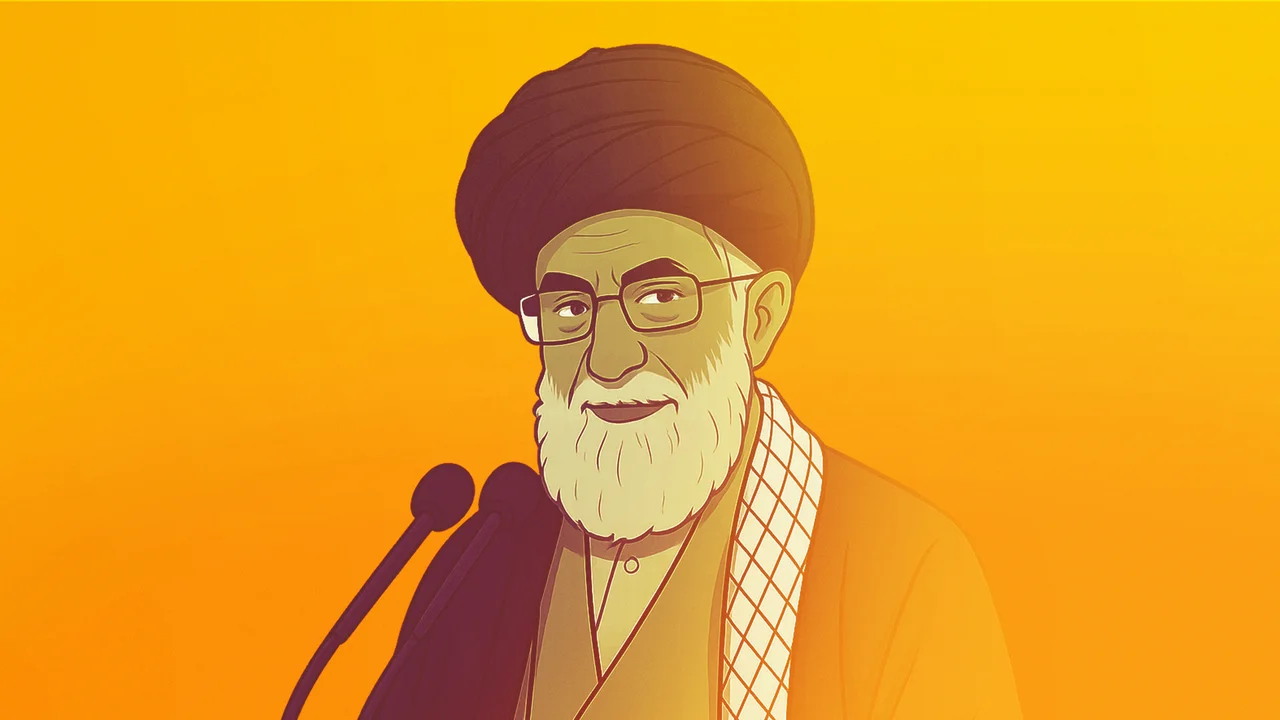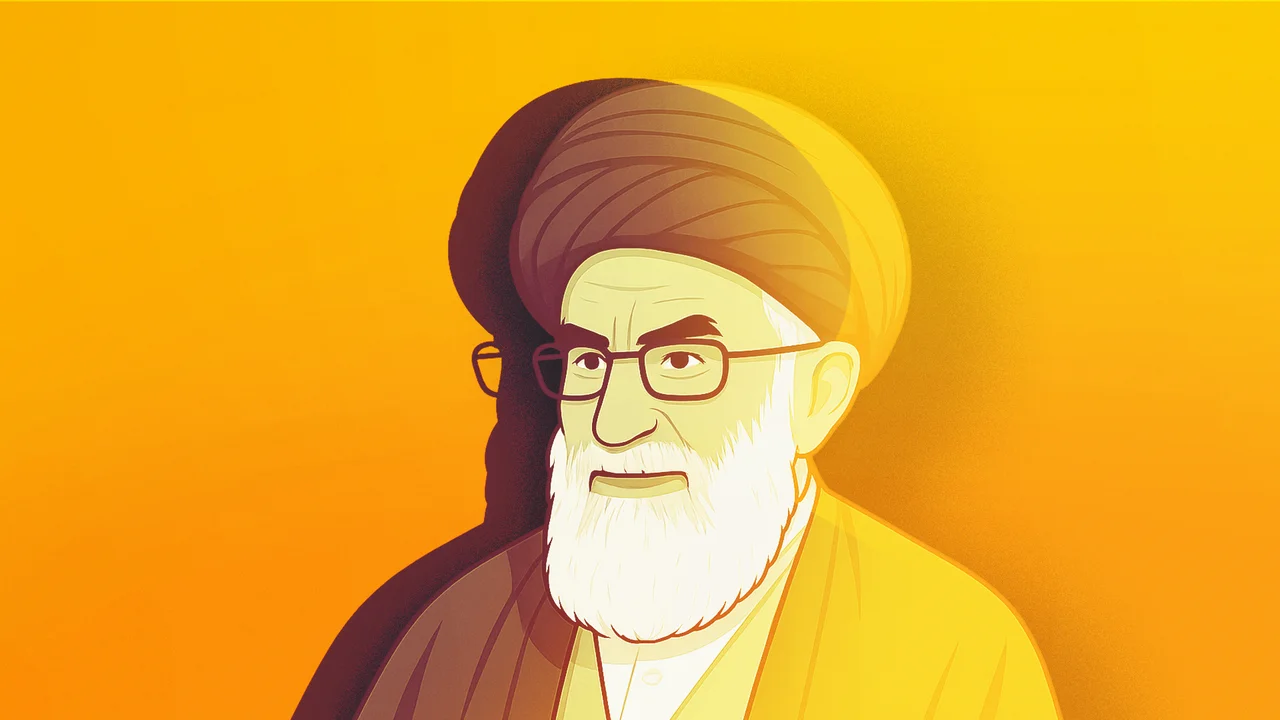Poll: 47% of Iranians Have Been Detained for Political Reasons
In an Iran Open Data survey, 47% of respondents stated that they have been detained or imprisoned at least once for political reasons. Additionally, 37% said that at least one member of their family has been detained or imprisoned for political reasons. Men reported a higher rate of experiencing detention or imprisonment for political reasons than women. 65% of respondents said that they have been detained or imprisoned for political reasons during the 2010s or between 2021 and 2023. More than half of the respondents with a history of political detention or imprisonment stated that no trial was held following their arrest.
There is no universally agreed-upon definition for “political prisoner”. Generally, a political prisoner refers to an individual who has been imprisoned as a result of their political activities or political beliefs. Governments also imprison individuals for their religious beliefs, ethnicity, language, gender, or sexual orientation. These individuals are also categorised as political prisoners because they have deviated from the established political system's rules. The U.S. Department of State estimates that there may be over one million political prisoners worldwide. However, the lack of consensus on the definition of “political prisoner” and government secrecy make it difficult to access, compare, and trust the available information.
In Iran, the existence of political prisoners, using the above definition, dates back over a century. Throughout this period, all governments have denied the existence of political prisoners and instead used titles such as “security detainees”. This opacity has led to a lack of accurate statistics and information regarding the number and characteristics of political prisoners.
Political prisoners have always existed since the establishment of the Islamic Republic in 1979. However, due to the aforementioned reasons, precise information regarding their numbers has never been available. The Atlas of Iranian Prisons mentions the existence of 240 prisons where political prisoners are held. According to this source, the current estimate for the number of political prisoners in Iran is close to 1,100. However, last year, authorities announced the release of nearly 20,000 individuals who had been detained for political reasons and in relation to protests following the murder of Mahsa/Jina Amini. This suggests the existence of a higher number of political prisoners.
In the absence of such information, Iran Open Data has asked social media users to share their own experiences or those of their family members regarding political detention or imprisonment. This poll was publicly available from the beginning of Esfand 1401 (February 2023) until the 11th of Ordibehesht 1402 (May 2023). During this period, 813 individuals participated in this poll. 73% of the respondents were male, while 27% were female. 95% of the respondents resided in urban areas, while the remaining 5% were from rural areas. The participants were scattered across 31 provinces. Most respondents were from Tehran, while the lowest participation rate was from North Khorasan province. The average age of the respondents was 34 years. 52% of the participants did not have a bachelor's degree, while 48% had a bachelor's degree or higher. Furthermore, 28% of the participants had permanent employment, 42% had temporary employment, 24% were unemployed or retired, and 6% were students. 45% of the respondents were single, 44% were married, and 11% had previously been married.
The following brief report and charts provide a more detailed overview of the poll results.
Detention or Imprisonment
- 47% of respondents said that they have been detained or imprisoned at least once for political reasons. On the other hand, 53% of them stated they have never been detained or imprisoned for political reasons.
- Men were more likely than women to report having been detained or imprisoned for political reasons.
- Respondents with no bachelor’s degree were more likely than those with bachelor's degrees or higher to be detained or imprisoned for political reasons.
Chart Link
Detention or imprisonment of family members
- 37% of the respondents said that at least one member of their family has been detained or imprisoned for political reasons.
- In general, 21% of the respondents said their family members had been detained or imprisoned at least once for political reasons.
Number of detentions or imprisonments - 62% of the respondents said they have been detained or imprisoned at least once in their lives for political reasons. Another 28% said they have been detained or imprisoned twice for the same reasons. 10% stated that they have been detained or imprisoned more than twice.
- Men said they have been detained or imprisoned more than once for political reasons more often than women.
- Individuals over 40 years old, and also individuals under 20, are more likely than other age groups to have been detained or imprisoned more than once for political reasons.
- Married individuals and those who were previously married were more likely than single individuals to have been detained or imprisoned more than once for political reasons.
Chart Link
Time of detention or imprisonment
- 65% of the respondents said they had been detained or imprisoned for political reasons in the 1390s or in the years 1400 to 1402. In contrast, only 6% of the respondents said they had such an experience in the 1360s.
- Women said they had been detained more during the years 1400 to 1402 compared to other decades. Men, on the other hand, said that they had been detained or imprisoned for political reasons more during the 1360s to 1380s.
- Individuals under the age of 20 stated that they were arrested or imprisoned for political reasons in the years 1400 to 1402 more frequently. However, middle-aged individuals (between 20 and 40 years old) were more likely to be detained or imprisoned for these reasons in the 1390s.
- Single respondents were more likely to state that they were arrested or imprisoned for political reasons in the years 1400 to 1402. On the other hand, married respondents were more likely to state that they were detained or imprisoned for these reasons during the period between the 1360s and 1380s.
- Students were more likely to be arrested or imprisoned for political reasons in the years 1400 to 1402. On the other hand, respondents with temporary and contractual jobs were more likely to say that they were detained or imprisoned for these reasons during the period between the 1360s and 1380s.
Chart Link
Length of detention or imprisonment
- A majority of respondents (25%) state that they have been detained or imprisoned for political reasons for a duration ranging from 2 to 10 days. Overall, nearly 70% of respondents claim to have spent 30 days or less in jail or prison.
- Men claim that the duration of their detention or imprisonment has been longer compared to women.
Chart Link
Prosecution and sentencing
- More than half of the respondents stated that they did not have a court hearing after their arrest. Only 47% of them stated that a court hearing was held.



